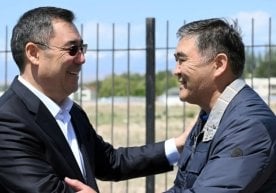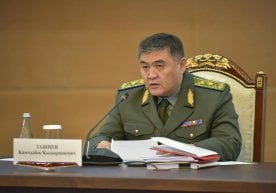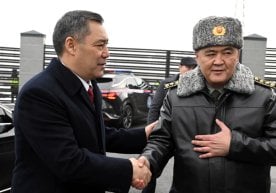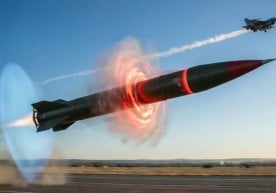Trump’s new Middle East doctrine: Turning away from Israel?
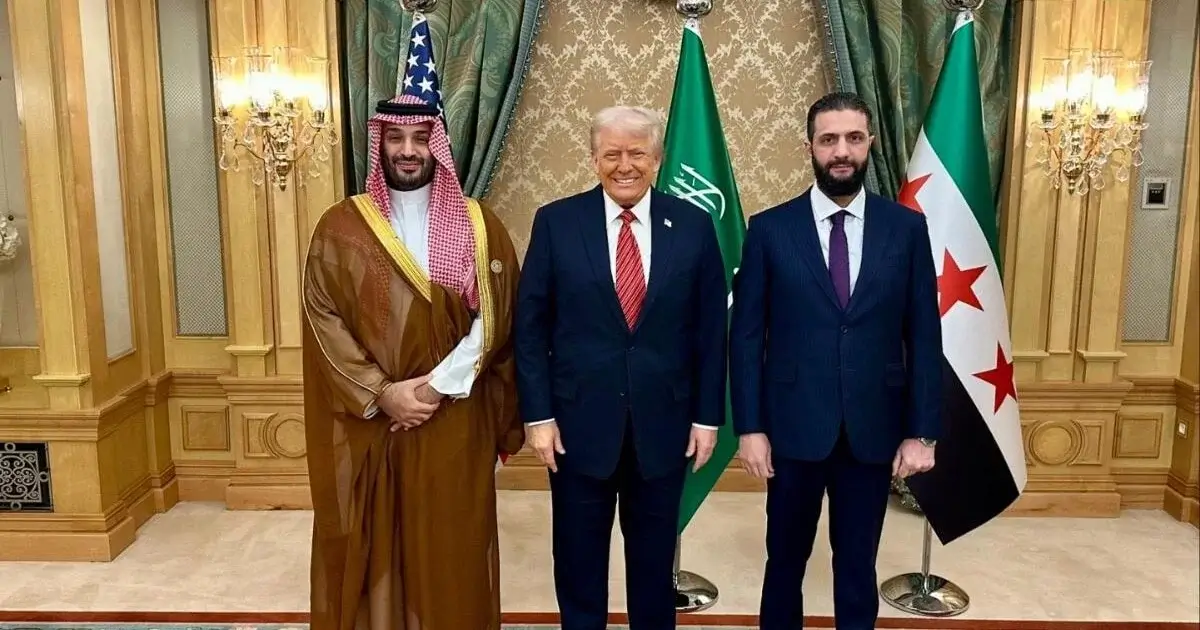
Usually, when discussing Donald Trump and the Middle East, the focus first and foremost is on the Israel factor. He even faced criticism for moving the U.S. embassy from Tel Aviv to Jerusalem. However, the last stop of the U.S. President’s latest Middle East visit was not Tel Aviv either. It was a trip that drew attention due to record-breaking agreements, a royal reception for Trump, respect for Arabs, and criticism directed toward Iran.
Experts on Middle Eastern issues Farhod Karimov, Shavkat Ikromov, and Habibullohon Azimov shared their thoughts on the topic at the Kun.uz studio.
Why did Trump begin his Middle East visit from Saudi Arabia?
Farhod Karimov: Trump had declared his intention to restore the economic power of the United States and regain its global influence and greatness. This was clear even during his first presidential campaign, and he also began his first official visit specifically from the Middle East region, particularly Saudi Arabia. Back then, he had met with Arab countries and stated, "Our primary goal will be focused on states and subjects that possess capital."
Today, the world’s largest investment project portfolios are concentrated in Arab countries. The goal of the United States is to compete with China and restore an economy capable of surpassing it. For Trump, such capital is currently as essential as water and air. Trump is a businessman, and his attention is precisely on that. Saudi Arabia is considered the largest and most influential among the Arab and Muslim countries possessing such capital.
From this viewpoint, the visit to the Middle East specifically began with Saudi Arabia, and if one pays attention, he spent the most time in Saudi Arabia. The meetings lasted nearly two days, and most of the issues discussed were economic in nature. In other words, Washington's primary task was to secure orders from Arab states before China and other countries could meet these demands.
Why was Israel not among the destinations? Has the attitude towards Tel Aviv changed, or is this Trump’s temporary measure of punishment?
Habibullohon Azimov: Trump indeed is a very pro-Israeli president. During his tenure, the U.S. diplomatic representation in Israel was moved to Jerusalem. This happened because Jewish lobbies supported him during his election campaign. However, today we see that Trump's Middle East policy has changed because now he is clearly showing himself more as a businessman than a president. His pursuit of finance and capital is forcing him to temporarily sideline U.S.-Israeli relations. Trump also has problems related to Netanyahu, because Netanyahu does not desire peace in the region.
Today we see Netanyahu using the Jewish diaspora in the U.S. to push America into confrontation with Iran. Trump cannot turn away from Israel’s security and statehood, yet he is conducting regional policy without Netanyahu. If today Netanyahu's era ends and the government changes, of course, the United States will support Israel’s regional security, economic stability, and political status as it always has.
Shavkat Ikromov: Trump does not have very positive relations with European countries. He frequently criticized Europe; therefore, no one expected such a visit from European countries. He also made aggressive remarks towards Canada. Therefore, the main focus was specifically directed toward Saudi Arabia. Even before his arrival in Riyadh, the Western media published an article titled “The White House’s biggest salesman is in Saudi Arabia.”
As noted above, the primary purpose of the visit was business-oriented. That is, to strengthen the United States, investments must be attracted. European countries perhaps could have invested, but the sectors proposed by the United States did not interest them. However, we must also consider that Arabs are very skilled traders.
In particular, Trump himself acknowledged that Crown Prince Mohammad bin Salman possesses excellent knowledge regarding entrepreneurship and effective management. During his first visit, the main agreements were related to record arms contracts, whereas this time, agreements were signed mainly in the sectors of construction, services, high technology, and artificial intelligence. Western media emphasized that these agreements mostly served the interests of Trump himself and his entourage.
The amount of deals announced with Saudi Arabia—$600 billion—currently remains merely as figures on paper, and their actual implementation remains uncertain. Trump has been president for over a hundred days, and he needs to demonstrate something to the American people, stating that he is attracting investments to the country.
The discussion also covered Trump’s demands from Syria’s interim leader Ahmad al-Shara', the recognition of Palestine, the essence of meetings in Qatar and the UAE, and the regional competition between the U.S. and China. Read “Zamin” on Telegram!
Ctrl
Enter
Found a mistake?
Select the phrase and press Ctrl+Enter 















